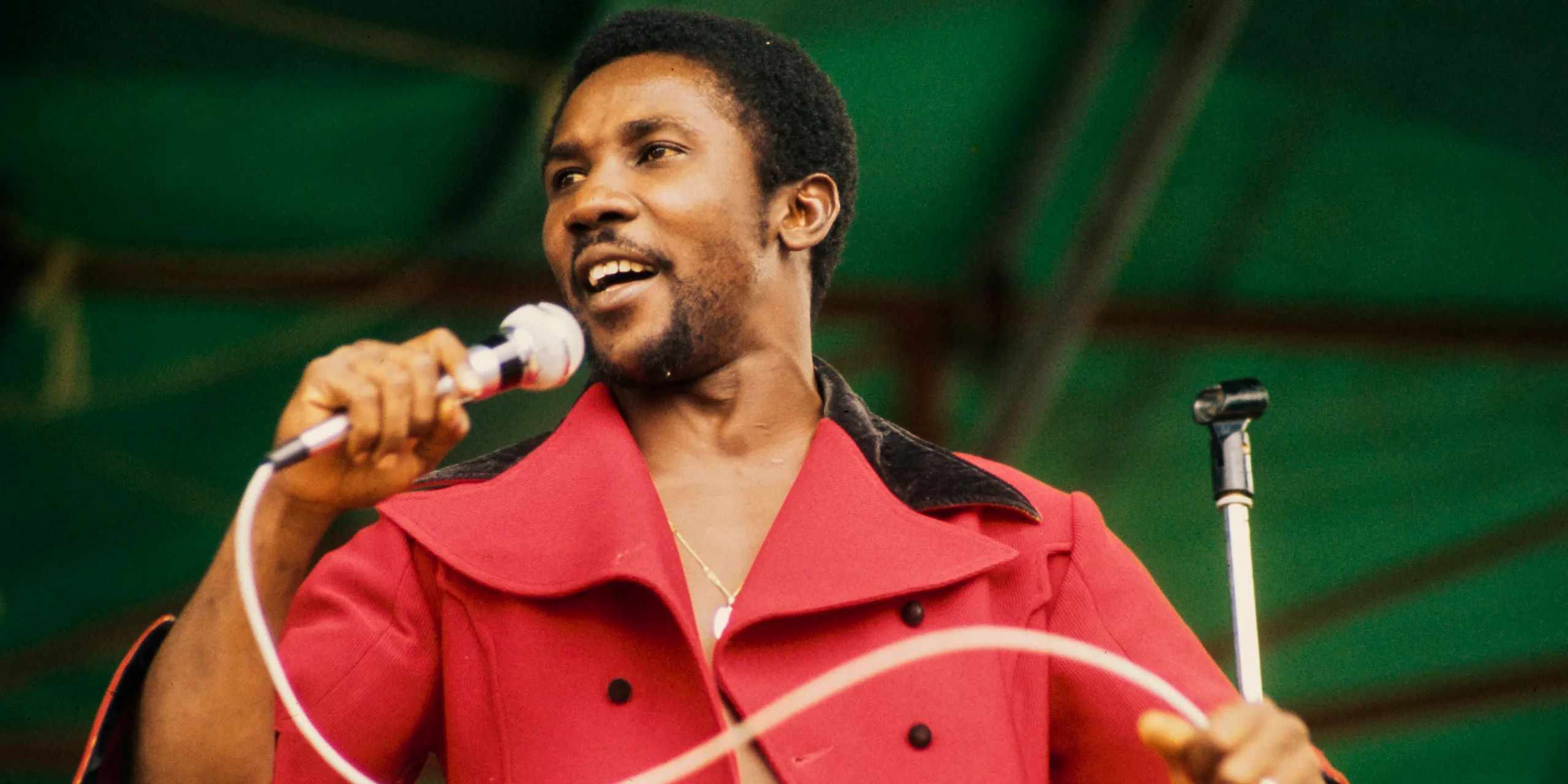Home>Production & Technology>Musician>What Is A Session Musician?


Musician
What Is A Session Musician?
Modified: February 15, 2024
Discover the role and importance of a session musician in the music industry. Find out how these talented musicians contribute to creating memorable songs and albums.
(Many of the links in this article redirect to a specific reviewed product. Your purchase of these products through affiliate links helps to generate commission for AudioLover.com, at no extra cost. Learn more)
Table of Contents
Introduction
Music has the power to touch our souls, evoke emotions, and create unforgettable moments. Behind the scenes of every hit song or iconic performance, there is often a hidden hero – the session musician. These versatile and skilled musicians play a vital role in the music industry, collaborating with artists, producers, and composers to bring their creative visions to life.
But what exactly is a session musician? In simple terms, a session musician is a professional musician who is hired to perform on recordings, live performances, or in studio sessions. They are proficient in playing a variety of instruments and are adept at adapting their style to fit different musical genres and artists’ requirements.
A session musician is not bound to any particular band or artist. Instead, they lend their talent and expertise to various projects, working with different musicians and producers on a freelance or contract basis. This provides them with a unique opportunity to explore diverse musical styles and collaborate with a wide range of artists, making each project a new and exciting experience.
While the role of a session musician may seem glamorous to some, it requires a high level of skill, adaptability, and professionalism. These musicians are often considered the unsung heroes of the music industry, as their contributions are frequently overshadowed by the fame and recognition bestowed upon the artists they work with. Nonetheless, their impact on the final product is undeniable.
Definition of a Session Musician
A session musician is a highly skilled and versatile musician who is hired to perform on recordings, live performances, or in studio sessions. They are hired by artists, producers, or composers to contribute their musical abilities to a project, often playing instruments or providing backing vocals.
Unlike members of a band or a touring artist, session musicians do not have a permanent affiliation and are hired for specific projects or sessions. They are known for their ability to adapt their playing style to fit various musical genres and artists’ preferences, making them valuable assets in the music industry.
A session musician’s main focus is to serve the creative vision of the artist or producer they are working with. They are expected to quickly learn and perform complex musical arrangements, often with limited rehearsal time. Their ability to read sheet music, improvise, and play by ear is essential in delivering the desired musical performance.
In addition to their musical talent, session musicians possess excellent communication and teamwork skills. They collaborate closely with artists, producers, and fellow musicians to ensure that the music meets the desired artistic direction. They take direction well and adapt their playing style to enhance and complement the overall sound of the project.
Session musicians may also be required to contribute creatively to the project by suggesting arrangements, musical ideas, or variations based on their expertise. Their extensive knowledge of different musical styles, genres, and techniques allows them to bring a unique perspective to the music-making process.
Overall, a session musician is a versatile and skilled professional who plays a crucial role behind the scenes, adding depth, texture, and a polished musical performance to recordings and live performances.
Skills and Qualifications
Being a successful session musician requires a combination of technical skills, musical knowledge, and professional qualities. Here are some of the key skills and qualifications that set session musicians apart:
- Musical Proficiency: Session musicians are expected to be highly skilled in playing one or more instruments. They must have a strong command of their chosen instrument(s) and possess excellent technique, timing, and accuracy. Additionally, they should have a solid understanding of music theory, including scales, chords, and musical structure.
- Adaptability: The ability to adapt to different musical styles and genres is crucial for session musicians. They must be versatile and comfortable playing a wide range of musical genres, including rock, pop, jazz, country, R&B, and more. This adaptability allows them to seamlessly integrate into various projects and meet the artistic vision of the artists they work with.
- Reading Music: Session musicians often encounter sheet music and charts during studio sessions. The ability to read and interpret sheet music accurately is highly advantageous. This skill enables them to quickly learn and perform complex musical arrangements, even with limited rehearsal time.
- Professionalism: Session musicians must conduct themselves professionally at all times. They are expected to be punctual, reliable, and well-prepared for each session or performance. They should maintain a positive attitude, be open to feedback and direction, and work collaboratively with fellow musicians, artists, and producers.
- Studio Experience: Experience working in a studio setting and understanding how the recording process works is essential for session musicians. They should be familiar with recording equipment, techniques, and studio etiquette. This includes understanding microphone placement, tracking, overdubbing, and the importance of maintaining consistent playing throughout a recording.
- Interpersonal Skills: Session musicians often collaborate with different artists, producers, and musicians. Good interpersonal skills are crucial for effective communication and collaboration. Session musicians need to listen actively, take direction well, and contribute their insights and ideas in a professional and respectful manner.
In addition to these skills, session musicians often have formal music education and training. They may have obtained a degree in music performance, composition, or music production. However, it’s important to note that practical experience and a solid portfolio of past projects and performances can be just as valuable in the session musician world.
Role and Responsibilities
The role of a session musician is multifaceted, and their responsibilities can vary depending on the project and the artists they are working with. Here are some common roles and responsibilities of a session musician:
- Recording Performances: One of the primary roles of a session musician is to contribute to studio recordings. They are responsible for providing instrumental or vocal performances that enhance the overall sound of the recording. They follow the guidance of the producer or artist, ensuring they capture the desired musical elements and tones.
- Live Performances: Session musicians may also be hired to perform live, either as part of a band or as a supporting musician for an artist or group. They are responsible for reproducing the studio recordings or adapting their parts to fit the live performance setting. They must be able to replicate or recreate the desired sound with consistency and accuracy during each live show.
- Collaboration: Session musicians work closely with artists, producers, and other musicians to bring the musical vision to life. This involves actively listening, communicating effectively, and collaborating to ensure cohesion and cohesiveness within the music. They take direction well and adapt their playing style to align with the requirements of the project.
- Arrangement and Composition: Depending on their musical proficiency and experience, session musicians may contribute to the arrangement or composition process. They may provide suggestions, variations, or creative ideas that enhance the music’s overall impact. Their knowledge of different musical styles and techniques allows them to contribute valuable insights during the creative process.
- Technical Skills: Session musicians are expected to have a strong understanding of technical aspects related to their instruments and sound production. This includes knowledge of different playing techniques, gear setup, and effects. They collaborate with recording engineers and producers to achieve the desired sound quality during studio sessions.
- Professionalism and Adaptability: Session musicians must maintain a high level of professionalism throughout their work. They need to be adaptable and flexible when working with different artists and musical styles. They should handle the pressure of demanding recording or live performance schedules. They also need to be reliable, punctual, and prepared for each session or performance.
Overall, the role of a session musician is to contribute their musical expertise to fulfill the artistic vision of the artist or producer they are working with. Through their versatile skills and collaborative approach, they play a vital part in creating memorable and impactful music.
Benefits and Challenges of Being a Session Musician
Being a session musician comes with a unique set of benefits and challenges. While it can be a fulfilling and exciting career choice, it is important to understand both sides of the coin. Here are some of the key benefits and challenges of being a session musician:
Benefits:
- Varied Musical Experiences: One of the biggest advantages of being a session musician is the opportunity to work on a wide range of musical projects. From pop to jazz, rock to country, session musicians get to explore different genres, styles, and musical collaborations. This diversity keeps their skills sharp and allows for personal growth as a musician.
- Networking and Connections: Working as a session musician exposes individuals to a vast network of industry professionals. They have the chance to collaborate with renowned artists, producers, and fellow musicians, leading to valuable connections and potential future opportunities. Building a strong network within the music industry can open doors for additional projects and even session work.
- Financial Stability: Session musicians are typically paid per project or session, which can provide a stable source of income. With multiple projects and collaborations, session musicians have the potential to earn a steady stream of work and income. This can be more consistent compared to being solely reliant on touring or being a part of a single band.
- Freedom and Flexibility: Being a session musician offers a degree of freedom and flexibility in terms of when and where one works. They have the flexibility to choose which projects to take on, allowing for a better work-life balance. This flexibility also extends to working with different artists and diverse musical styles.
- Musical Growth and Skill Development: As session musicians constantly face new challenges and musical opportunities, they have the chance to push their boundaries and grow as musicians. The exposure to different musical genres, techniques, and collaborations enables them to expand their skill set and develop a versatile playing style.
Challenges:
- Competition: The music industry is highly competitive, and establishing oneself as a session musician can be challenging. With numerous talented musicians vying for limited session opportunities, it may require persistence, networking, and consistently honing one’s craft to stand out and secure regular work.
- Uncertainty: The nature of being a session musician means that work opportunities can be sporadic. There may be periods of high demand followed by quieter periods. This uncertainty can make it challenging to maintain a stable income and plan for the future, requiring financial discipline and adaptability.
- Pressure and Expectations: Session musicians often face high-pressure situations where they are expected to deliver exceptional performances with limited rehearsal time. They must be able to adapt quickly and execute musical ideas flawlessly while meeting the expectations of producers and artists. This can be stressful and demanding, requiring a calm and focused mindset.
- Lack of Recognition: While session musicians contribute significantly to the final product, they often work behind the scenes and may not receive the same level of recognition as the artists they collaborate with. Their contributions may go unnoticed by the general public, which can be challenging for those seeking acknowledgment for their talent and hard work.
- Constant Adaptation: Session musicians must be versatile and adaptable to different musical styles, artists, and projects. They need to quickly learn and perform music that is often outside their comfort zone, requiring them to become proficient in various genres and playing techniques.
Despite the challenges they may face, session musicians who are passionate about their craft and committed to their profession can find immense satisfaction in contributing their skills to create memorable music with a wide range of artists and musical projects.
The Life of a Session Musician
The life of a session musician is dynamic, diverse, and filled with musical opportunities. While their exact experiences can vary, there are some common aspects that define the life of a session musician:
Variety of Projects: Session musicians have the privilege of working on an array of musical projects. They may find themselves in a recording studio one day, laying down tracks for a new album, and on stage the next day, performing live with a different artist or band. This variety keeps their work exciting and allows them to continually challenge themselves artistically.
Flexible Schedule: Session musicians often have a more flexible schedule compared to musicians tied to a specific band or artist. They can negotiate their availability for different projects and have the freedom to take on other musical endeavors simultaneously. This flexibility allows them to maintain a balanced work-life dynamic and pursue personal musical interests outside of session work.
Preparation and Adaptation: The life of a session musician involves meticulous preparation and adaptability. They must quickly understand and internalize musical arrangements, styles, and techniques, often with limited rehearsal time. This requires them to be highly skilled, adaptable, and able to deliver exceptional performances on demand.
Collaboration and Networking: Session musicians collaborate with various artists, producers, and fellow musicians, fostering valuable connections within the music industry. This collaborative nature allows session musicians to constantly learn from and be inspired by other talented individuals. It also opens doors for future opportunities and projects.
Continuous Skill Development: Session musicians are constantly refining their craft and expanding their musical knowledge. They practice diligently to maintain their technical proficiency, explore new playing styles, and stay up-to-date with industry trends. This commitment to continuous learning helps them evolve as musicians and remain in-demand within the industry.
Studio and Live Performance Skills: Session musicians develop expertise in both studio recording and live performance settings. They understand the different requirements and approaches for each context, ensuring their performances seamlessly translate from studio recordings to live shows. This versatility is a valuable asset in their career as it allows them to handle any performance situation.
The Unseen Heroes: Despite their significant contributions to the music industry, session musicians often operate in the background. They understand that their role is primarily to enhance the music and elevate the artist’s vision. While this may result in less recognition, session musicians take pride in knowing that they play an integral part in creating memorable music that resonates with audiences.
Lifelong Learning: The life of a session musician is a continuous journey of learning and growth. As they work on an array of projects and collaborate with diverse artists, they expand their musical repertoire and develop a versatile playing style. This constant exposure to different genres and musical perspectives keeps their passion alive and their craft evolving.
Embracing the Unknown: Session musicians thrive in an environment of unpredictability. They are comfortable with the uncertainty of not knowing what projects will come their way or who they will collaborate with next. This willingness to embrace the unknown fuels their creativity and allows them to constantly push their boundaries as musicians.
The life of a session musician is filled with excitement, challenges, and the joy of bringing music to life. Despite the demanding nature of their work, session musicians find fulfillment in their ability to contribute their musical prowess to a wide range of projects and leave their mark on the music they create.
Famous Session Musicians
The world of session musicians is home to many incredibly talented individuals whose contributions have shaped the landscape of popular music. While their names may not be as widely recognized as the artists they work with, their influence can be felt in countless iconic songs and performances. Here are a few notable session musicians who have left an indelible mark on the music industry:
- Tommy Tedesco: Known as “The Guitarist’s Guitarist,” Tommy Tedesco was one of the most prolific session guitarists of his time. He played on numerous hit records in the 1960s and 1970s, including songs by The Beach Boys, Frank Sinatra, and The Monkees. Tedesco’s mastery of various styles, impeccable technique, and ability to create memorable guitar riffs made him a sought-after session musician.
- Carol Kaye: Recognized as one of the most influential bass guitarists in popular music history, Carol Kaye’s resume is a testament to her exceptional talent as a session musician. She played on countless hit records, including songs by The Beach Boys, The Supremes, and Simon & Garfunkel. Kaye’s grooving bass lines and precise playing style became iconic features of many classic songs.
- Hal Blaine: Considered one of the greatest drummers of all time, Hal Blaine’s contributions as a session musician are legendary. He played on over 35,000 recording sessions, including songs by The Beach Boys, The Ronettes, and Elvis Presley. Blaine’s impeccable sense of timing, versatility, and ability to create memorable drum patterns earned him the title of “The Most Recorded Drummer in History.”
- Jerry Hey: Known for his exceptional trumpet and flugelhorn skills, Jerry Hey has left an indelible mark on the world of session musicianship. He has played on countless hit records, including songs by Michael Jackson, Earth, Wind & Fire, and Quincy Jones. Hey’s contributions as a brass arranger and performer have had a significant impact on the sound of numerous iconic recordings.
- Wrecking Crew: Although not a single individual, the Wrecking Crew deserves mention as a legendary group of session musicians who worked together during the 1960s and 1970s. Consisting of talented musicians such as Glen Campbell, Leon Russell, and Carol Kaye, among others, the Wrecking Crew played on countless hit records by artists such as The Beach Boys, The Mamas & the Papas, and Frank Sinatra. Their seamless playing, versatility, and ability to adapt to various musical styles helped define the sound of an entire era.
These are just a few examples of the countless talented session musicians who have left an indelible mark on the music industry. Their contributions behind the scenes have shaped the sound of popular music, making them unsung heroes of the industry.
Conclusion
Session musicians play an essential role in the music industry, contributing their exceptional talent and versatility to countless recordings and live performances. They possess a unique skill set that allows them to adapt to different musical genres, collaborate with various artists, and bring the creative visions of others to life.
Throughout this article, we have explored the definition of a session musician, their skills and qualifications, as well as their role and responsibilities. We have also discussed the benefits and challenges that come with being a session musician, highlighting the varied experiences and opportunities they encounter in their career.
While session musicians may not always receive the recognition they deserve, their contributions are immeasurable. They are the unsung heroes, the backbone of the music industry, adding depth and finesse to recordings and live performances. Their ability to adapt, learn quickly, and collaborate effectively makes them invaluable assets to artists, producers, and composers.
From the famous session musicians who have left an indelible mark on the industry to the countless talented musicians working behind the scenes, the world of session musicianship is filled with passion, dedication, and the pursuit of musical excellence. Their ability to create magic through their instruments and voices will continue to shape the sound of music for generations to come.
So, let’s take a moment to appreciate the session musicians who enrich our favorite songs with their talent and professionalism. The next time we listen to a memorable guitar riff, a grooving bassline, or a perfectly timed drum fill, let’s remember the skilled hands and dedicated hearts of the session musicians who made it all possible.











